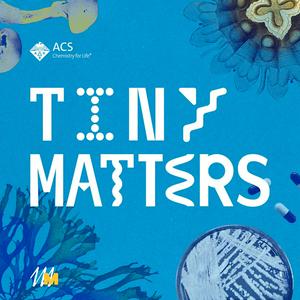In this episode of Tiny Show and Tell Us, a listener on “team wasp” writes in with some interesting info on USDA wasps for pesticide-free pest control and we learn about some wasp versus beetle drama. Then we talk about how our red blood cells use and expel iron, and how a huge percentage of the iron we get is from broken down blood cells.We need your stories — they're what make these bonus episodes possible! Write in to
[email protected] *or fill out this form* with your favorite science fact or science news story for a chance to be featured.A transcript and references for this episode can be found at acs.org/tinymatters.See Privacy Policy at https://art19.com/privacy and California Privacy Notice at https://art19.com/privacy#do-not-sell-my-info.


